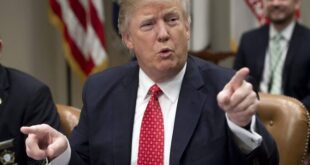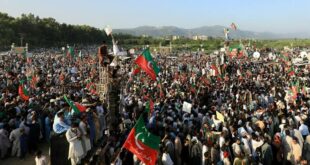
Zahid Rabbani
Pakistan is facing another challenging situation, a multipronged economic crisis that is troubling all Pakistanis and is unprecedented in its severity as well as complexity. To end it, there is a need for finding a middle ground and improved communication, along with broader policy choices.
The generation of policymakers at the helm lacks crisis management experience. Even though they have had to deal with the situation from a handicapped position due to the unfavorable external environment, some of their decisions and many of their indecisions have aggravated the impact of the crisis on markets and investors.
At this time of the year, the nation and the state are at a crossroads and maximum routes lead to more misadventure than seen in the last six months. It may perhaps be politics for those tied up in it but it spells life and death for a nation. There has not been a more perilous moment than this in our national history.
There is a slight likelihood for political players to develop an accord on issues of national importance. Our political arena stands dysfunctional and polarized to the point of disagreement. Apparently, there exist disagreements on every issue. The intensity and complexity of the divide are so deep and intricate and there seems to be no chance of finding the middle ground on critical issues. However, compromise remains the only savior of our incapacitating dilemma.
Political players should display socially acceptable behaviors that everyone must follow this pattern in letter and spirit. The government administration and its departments must ensure that not only citizens but also political players adhere to well-defined laws whose failure to obey should hold them accountable.
Who is responsible for the present goings-on in Pakistan? Some blame the corruption, the dysfunctional state of the economy trapped in a perpetual debt snare and despicable disparity; thorough external dependency and a consequent lack of policy independence; a general lack of education.
Some blame the media’s role in contributing to an unverified, partially correct, and at times one-sided public opinion; the unaccountable power structure, and the security environment that challenges rational resource allocations.
Political parties and their leaders share the major part of the blame. The people are mere spectators of a daily puppet show behind the facade of a political play without any favor. There seems to be no presence of good people in the unfolding drama of our political tragedy.
Monsoon rains have wreaked havoc across the country. As a result, residents across Balochistan and parts of Sindh and KP were left at the mercy of the monsoon’s fury.
Many political leaders did not take the recent destruction as a sign to intensify efforts to improve disaster management response. The situation forced the Army to step in and carry out relief operations in severely affected areas across Sindh and Baluchistan.
When the leaders and policymakers of the country fail to address major domestic issues, the country can have no foreign policy to build its image. The rest of the world continues to watch the internal situation of the country and never takes its foreign policy earnestly, however logical and rational it may be.
Our political chaos has become a major obstacle to the triumph of the country’s main foreign policy issue: an honorable, diplomatic, and lasting settlement of the Kashmir dispute with India that is acceptable to the Kashmiri people.
The Kashmiri people have so far courageously denied India the achievement of its vicious goal to usurp Kashmir territory. A diplomatic deadlock is increasing the suffering of the Kashmiri people. The world is aware of India’s treachery in Kashmir but is just not inclined to back Pakistan’s stance seeing the selfish games played by our political parties.
 Pride News Daily NEWS
Pride News Daily NEWS





